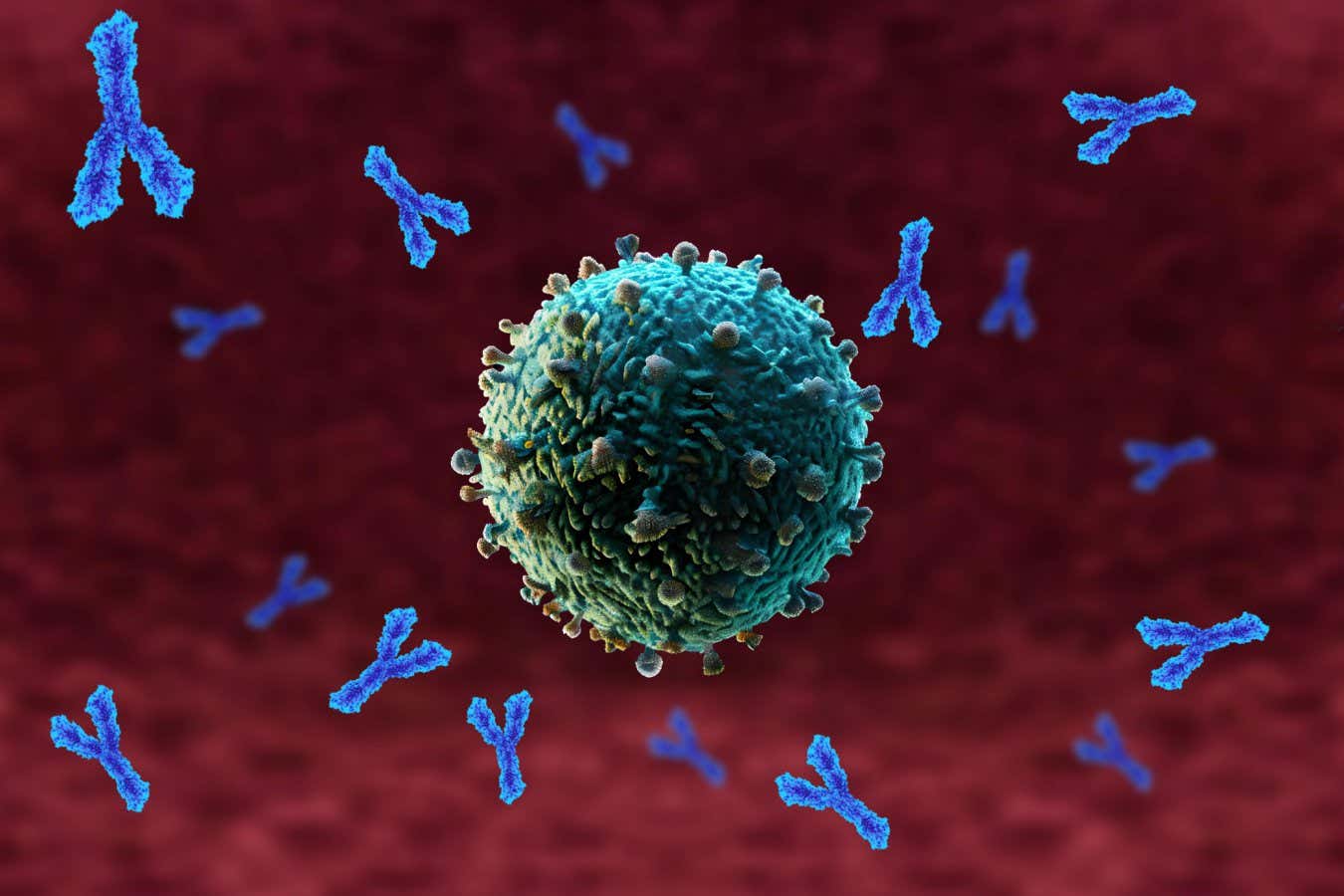

Antibodies are proteins that can target and attack certain cells
MirrorImages/Alamy
An experimental treatment rejuvenates the immune system of older mice, improving the animals’ ability to fight infections. If it works in humans, the therapy could reverse age-related declines in immunity that leave older adults susceptible to disease.
These declines may be due to changes in our blood stem cells, which can develop into any type of blood cell – including some key components of the immune system. As we age, a larger proportion of these stem cells become predisposed to producing some immune cells over others, says Jason Ross at Stanford University in California. This imbalance impairs the immune system’s ability to fight infection. It also fuels chronic inflammation, which accelerates ageing and increases the risk of age-related illnesses like heart disease, cancer and type 2 diabetes.
Ross and his colleagues developed a treatment using antibodies, or proteins that recognise and attack certain cells, to target these biased stem cells. They then tested the treatment in six mice between 18 and 24 months old, which is roughly equal to an age of 56 to 70 years in humans.
A week after receiving an antibody injection, the mice had about 38 per cent fewer of these aberrant stem cells, compared with six rodents of the same age that didn’t receive the treatment. They also had significantly greater amounts of two types of white blood cells crucial for recognising and combatting pathogens, as well as lower levels of inflammation.
“You can think of it as kind of turning back the clock,” says Ross. “We’re making the proportion of these [immune] cells more similar to [those of] a younger adult mouse.”
To test if these changes resulted in a stronger immune system, the researchers vaccinated 17 older mice against a mouse virus. Nine of these mice had received the antibody treatment eight weeks earlier. The researchers then infected the rodents with the virus. Two weeks later, they measured the number of infected cells in the animals and found that nearly half of the treated mice – four out of nine – had completely cleared the infection, compared with only one of the eight untreated mice.
Together, these findings indicate the antibody treatment rejuvenates the immune system of old mice. Since humans, like rodents, also see aberrant blood stem cells increase with age, a similar antibody treatment may reinvigorate our immune systems too, says Ross.
Such a possibility is still a long way off, says Robert Signer at the University of California, San Diego. For one, we need to better understand potential side effects of the treatment. In an accompanying article, Signer and his colleague Yasar Arfat Kasu, also at the University of California, San Diego, suggest that depleting stem cells, even aberrant ones, could heighten the risk of cancer. On the other hand, “a better immune system is going to be better at surveying for cancers. So we just don’t know exactly what will happen yet”, says Signer.
Still, these findings are a promising breakthrough in our understanding of age-related immune decline and how to mitigate it, says Ross.
Ageing is the number one risk factor for a broad range of diseases. “By rejuvenating or improving immune function in older people, that could really help with fighting off infections,” says Signer. “You might also have an impact on different types of chronic inflammatory diseases. That’s what’s so exciting here.”
Topics:








